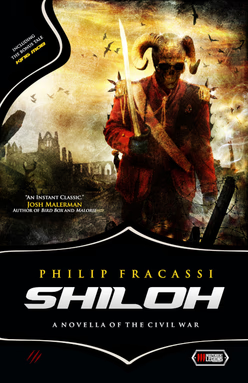King Mob

Philip Fracassi knows his way around a nightmare. In “King Mob,” he follows a young William Blake—yes, that Blake—headfirst into the Gordon Riots of 1780. What starts as historical fiction quickly turns diabolic.
The story opens with young Blake as apprentice engraver on his way to James Basire’s shop. En route, he’s swept into a mob marching on Newgate Prison. The historical detail feels lived-in. Fracassi knows his Georgian London—the stench, the fury, the powder-keg tension of religious hatred about to explode.
Then Blake meets the mob’s leader. A magnetic figure with coal-black eyes who claims intimate knowledge of our future poet. “We’ve had such conversations, you and I,” the mysterious man roars, and we believe him. Blake’s feeling of recognition—“like looking into the face of a prodigal brother”—crackles with supernatural dread. When the man finally reveals himself as King Mob, bellowing his name as thunder rolls overhead, we feel Blake’s intoxication with darkness.
The violence that follows is visceral and necessary. Fracassi doesn’t flinch from showing us guards butchered, prisoners freed regardless of their crimes, civilization’s thin veneer stripped away. When a wounded Blake’s vision reveals the demons crawling through Newgate, we understand we’re witnessing more than riot. Hell, it seems, has come calling.
But here’s the rub: Fracassi’s ambitions outsize his canvas. Twenty pages can’t contain the epic he’s attempting. The transformation from historical drama to supernatural horror feels rushed. Blake’s corruption—the story’s emotional core—happens too fast to land with proper force.
The historical Blake wrote of seeing angels in trees, of conversations with the ghost of a flea. He knew something about visions. Fracassi captures that mystical sensibility, but his story needs room to breathe, space to develop the psychological horror of a young man discovering his capacity for darkness.
“King Mob” reads like a trailer for a bigger work. It’s all setup and payoff with no slow burn in between. Fracassi has the chops—his prose sings, his historical research convinces, his supernatural elements genuinely unnerve. He just needs a bigger canvas.
Reading History
- 2025Jul12SatEbook (Shiloh, Independent Legions Publishing, 2020)